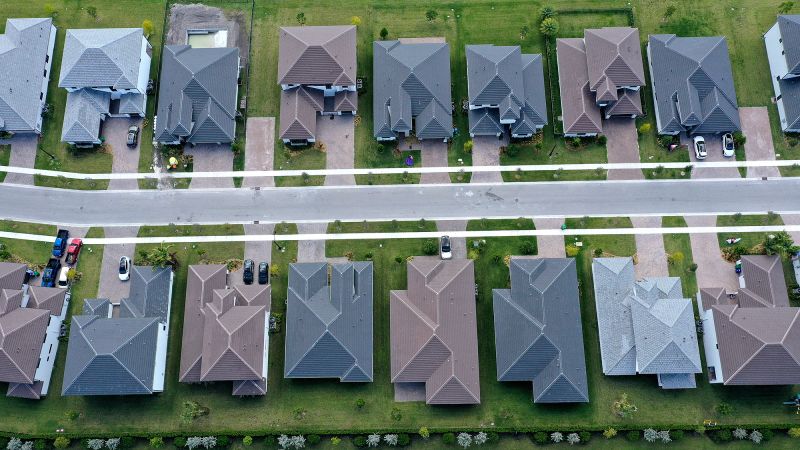Buying a family-sized home with three or more bedrooms used to be manageable for young people with children. But with home prices climbing faster than wages, mortgage rates still close to 23-year highs and a shortage of homes nationwide, many Millennials with kids can’t afford it. And Gen Z adults with kids? Even harder.
Meanwhile, Baby Boomers are staying in their larger homes for longer, preferring to age in place and stay active in a neighborhood that’s familiar to them. And even if they sold, where would they go? There is a shortage of smaller homes in those neighborhoods.
As a result, empty-nest Baby Boomers own 28% of large homes — and Milliennials with kids own just 14%, according to a Redfin analysis released Tuesday. Gen Z families own just 0.3% of homes with three bedrooms or more.



I know a real estate developer type. (kinda a moron, actually, but he’s got a lot of experience in building expensive places to live.)
A comment he made to me once was “Nobody builds low-income housing. a mid-rise luxury condo will only cost a bit more to build than low income apartments, but you make a shitload more”
yeah, he was also kind of an asshole.
Yeah, I completely believe it.
Space-efficient middle housing for the poor and lower middle-class is not something we can rely on private companies to do in America. It’s something that is going to have to take government intervention.
The apartment complex I was in took up as much land as around 5-7 average sized new construction homes yet it housed
4246(I actually remember two of the buildings having 8 apartments each) apartments. It was also in a part of the country where a car was basically required. There was space for every apartment to have at least 1 car and have space to spare. Realistically probably about 1.5 cars per apartment could fit parked in the complex.Parking minimums are utter madness, and a big part of the issue in the US. Although I understand that in some states/cities where this isn’t required, developers still overbuild the parking just out of the assumption that buyers/renters will prefer it.
deleted by creator
Yes, but do you need multiple parking spaces for every tenant (who might not have a car), especially given most parking lots are massively underutilized? Even more so when you look at the situation across a neighbourhood or a city where there are likely spaces nearby that could be used.
True.
However I was simple talking about an apartment complex in a relatively rural part of the country without access to public transit. There were about 55-60 parking spaces for 7 buildings of 46 apartments.
deleted by creator
Here in the UK it’s generally the same, but also in a way worse.
Developers are “required” to build a percentage of homes that are “affordable”. I put both of these in quotes because, yeah. They dodge it over and over and somehow are still granted permission for their next project.
A lot of the big developments in minneapolis are supposed to have a certain percentage of the spaces be “affordable”, but, if you happen to be one of the largest real estate developers and in the world… and if you happen to own several lobbyists… waivers exist.
He may have been an asshole but that statement isn’t what made him one. He’s just working with reality.
Making luxury stuff makes more money for him and his whole team. Simple stuff.
If we as society want change, we need to work with the vehicle we have to do so: government.
Set quotas. Offer subsidies to builders. Specify zoning to require x% of undeveloped land earmarked for building to be higher density or lower cost. (Or both.)
The context of that conversation was in a looming housing crisis. This was before the Hiawatha encampment made it much more visible.
In any case I was and am active in the city level politics and I was looking for a rough estimate to price out literally just building new apartments for everyone that needed a home.
Basically he was saying “but nobody does that,” and he’s right. And I wouldn’t expect him to. But, just for the record, from what I found at the time chatting up a few developers…
… it would have cost less than the cities-then budget for dealing with the housing crisis. But people want to be assholes for some reason.